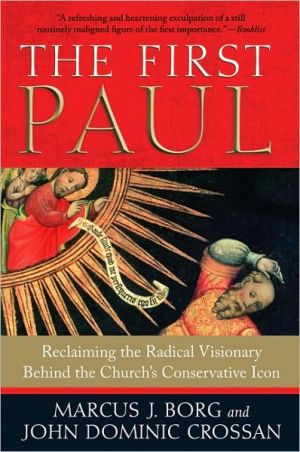The Murder of Jesus
An unprecedented conspiracy of injustice, cruelty, and religious and political interests sentenced a man guilty of no crimes to the most barbaric method of execution ever devised. The victim was no mere man. Jesus was God in the flesh. The Creator of life died. How did such a thing come to be? Who were the onlookers, the players, the fakes, frauds, and heroes? What was it like in the Upper Room that night, in the shadows of Gethsemane, or in the Praetorium awaiting Pilate's verdict? What is...
Search in google:
The story of Christ's crucifixion has become so familiar that it has lost its ability to shock, outrage or stir any emotion. Popular pastor and author, John MacArthur presents this pivotal moment in the life of Jesus in a way that forces viewers to witness this event in all its power. The passion of Christ is examined chronologically through the lens of the New Testament with special attention given to Jesus' words on the cross, the miracles that attended the crucifixion, and the significance of Christ's atoning work.
\ \ \ \ \ Chapter One\ \ \ The Plot to Kill Jesus\ \ \ WHO KILLED JESUS?\ Over the years the Jewish people have usually borne the brunt of the blame. The expression "Christ killers" has often been employed as a racial epithet by misguided zealots and hate-mongers. And sadly, the charge of killing Jesus has frequently been employed to justify everything from hate crimes to holocausts against the Jewish people. Even though these pogroms have sometimes been carried out in the name of Jesus, such bigotry stems from satanic and anti-Christian motives, certainly not from any genuine love of Christ.\ There is, however, a true sense in which both Old and New Testaments hold Israel culpable for the murder of her Messiah. Isaiah 49:7, for example, speaks of the Holy One, the coming Messiah, as "Him whom man despises ... Him whom the nation abhors." Isaiah 53:3 prophetically describes how the Messiah would be despised and not esteemed by His own people, who would, as it were, hide their faces from Him in the hour of His death. Psalm 22:6-8 prophetically describes the treatment Christ would receive at the hands of His own brethren as He hung on the cross: "I am a worm, and no man; a reproach of men, and despised by the people. All those who see Me ridicule Me; they shoot out the lip, they shake the head, saying, `He trusted in the Lord, let Him rescue Him; let Him deliver Him, since He delights in Him!'"\ In the New Testament, we read that the plot to kill Jesus was hatched in a secret council led by none other than Caiaphas, the highpriest:\ \ \ The chief priests and the Pharisees gathered a council and said, "What shall we do? For this Man works many signs. If we let Him alone like this, everyone will believe in Him, and the Romans will come and take away both our place and nation." And one of them, Caiaphas, being high priest that year, said to them, "You know nothing at all, nor do you consider that it is expedient for us that one man should die for the people, and not that the whole nation should perish." ... Then, from that day on, they plotted to put Him to death. (John 11:47-50, 53)\ \ \ That council, which clearly involved the Sanhedrin, the ruling council in Israel during the time of Christ, was certainly culpable. And there is a legitimate sense in which the guilt of the crime was shared not only by the chief priests and rulers, but also by the people of Israel (cf. Luke 23:13). They were the ones who shouted, "Crucify Him, crucify Him!" as He stood on trial before Pilate (v. 21). That is why Peter, speaking in Jerusalem on the day of Pentecost, addressed the "men of Israel" and said, "You have taken [Christ] by lawless hands, have crucified [Him], and put [Him] to death" (Acts 2:22-23, emphasis added).\ But were the Jews any more culpable than others for Christ's death? Certainly not. It was, after all, Pontius Pilate, a Gentile Roman governor, who sentenced Him to death. And he did so in collusion with Herod Antipas, who (although he bore the title "King of the Jews") was no Jew, but rather an Idumean—a foreign ruler, hated by the Jews, whose throne was granted by Caesar.\ Furthermore, crucifixion was a Roman method of execution, authorized and carried out by Roman, not Jewish, authorities. Roman soldiers drove the nails through Christ's hands and feet. Roman troops erected the cross (Matthew 27:27-35). A Roman spear pierced His side (John 19:34). Gentile hands therefore played an even more prominent role in the actual murder of Jesus than the Jews did.\ In fact, the murder of Jesus was a vast conspiracy involving Rome, Herod, the Gentiles, the Jewish Sanhedrin, and the people of Israel—diverse groups who apart from this event were seldom fully in accord with one another. In fact, it is significant that the crucifixion of Christ is the only historical event where all those factions worked together to achieve a common goal. All were culpable. All bear the guilt together. The Jews as a race were no more or less blameworthy than the Gentiles.\ This is very plainly stated in Acts 4:27, a corporate prayer offered in an assembly of the very earliest believers: "For of a truth against thy holy child Jesus, whom thou hast anointed, both Herod, and Pontius Pilate, with the Gentiles, and the people of Israel, were gathered together" (KJV). So there is no justification whatsoever for trying to fix the blame for Jesus' death on any one people group. This was, in essence, a corporate act of sinful humanity against God. All are guilty together.\ And yet even that does not exhaust the full truth about who killed Jesus. Scripture emphasizes from cover to cover that the death of Christ was ordained and appointed by God Himself. One of the key Old Testament prophecies about the crucifixion is Isaiah 53. Isaiah prophetically describes the torture of the Messiah at the hands of a scoffing mob, and then adds, "Yet it pleased the Lord to bruise Him; He has put Him to grief" (Isaiah 53:10). God put his own Son to death? That is precisely what Scripture teaches. Why? According to Isaiah 53:10, it was to "make His soul an offering for sin." God had a redemptive purpose.\ The designs of those who killed Christ were entirely murderous. They are by no means exonerated from their evil, just because God's purposes are good. It was still the act of "lawless hands" (Acts 2:23). It was, as far as the human perpetrators were concerned, the ultimate act of pure evil. The wickedness of the crucifixion is in no sense mitigated by the fact that God sovereignty ordained it for good. The truth that it was His sovereign plan makes the deed itself no less a diabolical act of murder.\ And yet this was clearly God's holy and sovereign plan from before the foundation of the world (Revelation 13:8). Look again at that prayer from Acts 4, this time in its full context:\ \ \ Lord, You are God, who made heaven and earth and the sea, and all that is in them, who by the mouth of Your servant David have said: "Why did the nations rage, and the people plot vain things? The kings of the earth took their stand, and the rulers were gathered together against the Lord and against His Christ." For truly against Your holy Servant Jesus, whom You anointed, both Herod and Pontius Pilate, with the Gentiles and the people of Israel, were gathered together to do whatever Your hand and Your purpose determined before to be done. (Acts 4:24-28, emphasis added)\ \ \ Acts 2:23 echoes the same thought: "Him, being delivered by the determined purpose and foreknowledge of God, you have taken by lawless hands, have crucified, and put to death" (emphasis added).\ God ordained the murder of Jesus. Or to put it starkly in the words of Isaiah 53:10, it pleased the Lord to bruise Him.\ In what sense was God pleased by the death of His Son?\ He was pleased by the redemption that was accomplished. He was pleased that His eternal plan of salvation was thus fulfilled. He was pleased with the sacrifice of His Son, who died so that others might have eternal life. He was pleased to display His righteous anger against sin in such a graphic way. He was pleased to demonstrate His love for sinners through such a majestic sacrifice.\ For all the evil in the crucifixion, it brought about an infinite good. In fact, here was the most evil act ever perpetrated by sinful hearts: The sinless Son of God—holy God Himself in human flesh—was unjustly killed after being subjected to the most horrific tortures that could be devised by wicked minds. It was the evil of all evils, the worst deed human depravity could ever devise, and the most vile evil that has ever been committed. And yet from it came the greatest good of all time—the redemption of unnumbered souls, and the demonstration of the glory of God as Savior. Though the murderers meant evil against Christ, God meant it for good, in order to save many (cf. Genesis 50:20).\ The Cross is therefore the ultimate proof of the utter sovereignty of God. His purposes are always fulfilled in spite of the evil intentions of sinners. God even works His righteousness through the evil acts of unrighteous agents. Far from making Him culpable for their evil, this demonstrates how all He does is good, and how He is able to work all things together for good (Romans 8:28)—even the most wicked deed the powers of evil have ever conspired to carry out.\ Furthermore, if God was sovereignly in control when the unlawful hands of murderous men put His beloved Son on a cross, why would anyone balk at the notion that God is still sovereignly in control even when lesser evils occur? The Cross therefore establishes God's absolute sovereignty beyond question.\ \ \ THE CONSPIRACY IS BORN\ \ \ The drama of the crucifixion begins in Matthew 26, where the plot to murder Jesus is hatched. Actually, in a very important sense, the entire life of Christ had been a prologue to this moment. He condescended to become a man with the express purpose of dying (John 12:27; Philippians 2:4-7; Hebrews 2:14). As He stood before Pilate to be condemned to death, Christ Himself said, "For this cause I was born, and for this cause I have come into the world" (John 18:37). He repeatedly spoke of the hour of His death as "my hour" (John 2:4; 7:6, 30; 8:20; 12:23; 13:1; 17:1). Everything in His life was preparation for the hour of His death.\ Jesus had told His disciples numerous times that He would die at the hands of those who hated Him. In fact, long before His final journey to Jerusalem, "while they were staying in Galilee, Jesus said to them, `The Son of Man is about to be betrayed into the hands of men, and they will kill Him'" (Matthew 17:22-23; cf. 16:21; 20:17-19).\ Now the hour had come, and an unstoppable chain of events had begun that would end in His murder. His final week of earthly ministry was drawing to a close. Christ had just finished His Olivet Discourse, the great prophetic sermon that spans Matthew 24-25. But His thoughts were not far from the subject of His death. Matthew writes, "Now it came to pass, when Jesus had finished all these sayings, that He said to His disciples, `You know that after two days is the Passover, and the Son of Man will be delivered up to be crucified'" (26:1-2). He knew His hour had come. The sovereign plan of God for the redemption of sinners was about to come to fruition. And although evil men were at that very moment plotting His death in secret, it was no secret from the sovereign, omniscient mind of Christ.\ Only a few days before, He rode into the city in triumph, while shouts of "Hosanna" rang from crowds lining the streets. To the disciples—to any observant human eye—it looked as if He would be swept onto the Messianic throne with an unstoppable wave of grass-roots support. But Jesus knew the real truth. Public opinion is fickle. Righteousness will never triumph through public opinion anyway. The fawning masses were attracted to Jesus' miracles, but they were not prepared to acknowledge their sin and yield to Him as Lord. It is entirely probable that many of the same people who were shouting hosannas to Him at the beginning of the week were the same ones yelling "Crucify Him, crucify Him!" before the week was over.\ Nonetheless, the Jewish leaders, threatened by Jesus' apparent popularity among the people of Jerusalem, met together clandestinely to discuss what to do about Him. Matthew describes the scene: "Then the chief priests, the scribes, and the elders of the people assembled at the palace of the high priest, who was called Caiaphas, and plotted to take Jesus by trickery and kill Him. But they said, `Not during the feast, lest there be an uproar among the people'" (Matthew 26:3-5).\ The evil plot would ultimately succeed, but only in accord with the divine plan, and only according to the divine timetable. In fact, had the murder of Jesus not been part of the eternal plan of God, it would never have happened. Jesus said of His Life, "No one takes it from Me, but I lay it down of Myself. I have power to lay it down, and I have power to take it again. This command I have received from My Father" (John 10:18). Pilate would attempt to force Jesus to answer the accusations against Him by citing his own authority as governor—"Do You not know that I have power to crucify You, and power to release You?" (John 19:10). But Jesus replied, "You could have no power at all against Me unless it had been given you from above" (v. 11). Clearly, God was utterly sovereign in every aspect of what was occurring.\ In fact, on several occasions prior to this, various enemies of Christ had sought to kill Him but were divinely thwarted because it was not yet His time. The earliest attempt to kill Him was immediately after His birth. Herod slaughtered all the male infants in and around Bethlehem, because he heard the Messiah had been born there. But an angel from the Lord warned Joseph, and the little family fled to Egypt until the threat had passed.\ In one of his first acts of public ministry, Christ read from the scroll of Isaiah in His hometown synagogue in Nazareth. The people became so enraged at His teaching when He claimed to be the One who the prophet wrote about that they carried Him out of the city to the brow of the hill on which the city stood. Their plan was to throw Him off the cliff to His death, but He supernaturally eluded them (Luke 4:16-30). It was not yet His time.\ During Christ's earlier ministry in Jerusalem, He healed a man at the pool of Bethesda on the Sabbath. When the religious leaders challenged Him, Christ replied that His Father was working, so it was fitting for Him to work as well (John 5:17). John writes, "The Jews sought all the more to kill Him, because He not only broke the Sabbath, but also said that God was His Father, making Himself equal with God" (v. 18). Many of those same Jewish leaders were no doubt the same ones who later would join the plot with Caiaphas.\ During that earlier time of ministry in Jerusalem, it became so well known that the Jewish leaders were seeking to kill Jesus that He was referred to as "He whom they seek to kill" (John 7:25). The widespread knowledge that His life was in danger did not deter Jesus in the least. He continued speaking boldly, and the Jewish leaders, intimidated by His fearlessness, said nothing to Him. That caused many people to wonder if the Sanhedrin knew He was the Messiah (v. 26). Even the temple guard, assigned to arrest Him, cowered at His boldness. When the chief priests and Pharisees demanded to know why He had not been arrested, the temple officers replied, "No man ever spoke like this Man!" (John 7:46).\ It was not yet His time, and not until His time had come could their murderous plans possibly succeed.\ When it was His time, He knew it. On the night of His arrest, He told the disciples, "The Son of Man goes as it has been determined" (Luke 22:22).\ And so the plot that was being devised against Jesus by His enemies was in perfect accord with the plan of God from eternity past.\ The apostle John underscores that fact in his account of the conspirators' private discussions. John may have obtained details about what was said at the meeting from someone actually present when the conspiracy was being planned—probably Nicodemus, who is identified as a ruler of the Jews (John 3:1), yet seems to have been secretly sympathetic to Christ (cf. John 7:50-51; 19:38-39). John reports that the Jewish leaders were fearful that Christ's popularity among the people would result in pressure to recognize Him as Messiah and rightful ruler of the Jews. That would disrupt the uneasy peace with Rome, and it would enflame the anti-Roman Zealots, a rogue political faction who wanted to overthrow Roman rule. That in turn would pose a threat to the status of the high priest and Sanhedrin, who wielded a token authority in Jewish society (especially in religious affairs) by permission of Rome (John 11:48). The Jewish leaders were therefore doing all they could to quell messianic fervor in Israel. Moreover, Pilate was already responding to Jewish Zealotry by suppressing it with violence (cf. Luke 13:1). So the Jewish leaders concluded that they had to silence Jesus, without regard to whether He was the true Messiah or not.\ The leading character in this scene is Caiaphas, the high priest that year. Caiaphas was a politically motivated, pragmatic opportunist. Biblically, of course, the high priesthood was passed through the Levitical line. During the Roman occupation, however, high priests were approved and appointed by Rome. Historical evidence strongly suggests that the office was often purchased with money or granted as a political favor. Caiaphas had married the daughter of Annas, former high priest (John 18:13). Annas still wielded significant power through his son-in-law, so that the office amounted to a kind of joint priesthood (Luke 3:2). History records that Caiaphas held the office for more than two decades—an extraordinarily long time when we consider that in a hundred years of Roman occupation, twenty-eight men served as high priest. (When Caiaphas was finally deposed from the high priesthood in A.D. 36-37 by the Roman governor Vitellus, his successor lasted a mere fifty days.) The length of Caiaphas's tenure suggests that he had somehow gained unusual favor with Rome. He was certainly corrupt. It was under his authority that the moneychangers plied their trade on the temple grounds. This had no doubt made him an extremely wealthy man. And given the fact that Christ had twice driven the moneychangers from the temple (John 2:14-16; Matthew 21:12-13), it is no wonder Caiaphas hated Him so much.\ Caiaphas was a Sadducee. The Sadducees were an aristocratic sect who controlled the temple in Jesus' time. They were religious liberals and utter materialists, denying the resurrection of the dead, heaven, angels, and all the supernatural elements of Scripture (Acts 23:8). They interpreted the law of Moses with a rigorous literalism but tended to discount or downplay the rest of Scripture. They were therefore normally in opposition to the Pharisees, but the two groups had often conspired together to try to discredit Christ, and in each case He had silenced and embarrassed them (Matthew 16:1-4; 22:34-35; Mark 12:13-23). Now they were united once more in the plot to kill Him.\ It was Caiaphas who said, "It is expedient for us that one man should die for the people, and not that the whole nation should perish" (John 11:50). Although Caiaphas was talking about murdering Jesus to suppress a political threat, John saw an unintentional prophetic significance in his words: "Now this he did not say on his own authority; but being high priest that year he prophesied that Jesus would die for the nation, and not for that nation only, but also that He would gather together in one the children of God who were scattered abroad" (vv. 51-52).\ In other words, what Caiaphas and the Sanhedrin were planning for evil reasons, God intended for good (cf. Genesis 50:20). They wanted to kill Jesus in order to save the nation from the immediate threat of violent destruction at the hands of Rome. God was willing to sacrifice His Son in order to save the nation—indeed, people from every nation—from eternal condemnation because of their sin. The apostle John would employ almost identical language in a later epistle, "He Himself is the propitiation for our sins, and not for ours only but also for the whole world" (1 John 2:2).\ And thus the evil plans of these conspirators coincided precisely with the eternal plan of God.\ The timing was also in precise accord with the plan of God. It was Passover, when the sacrificial lambs were slain. And Christ was to be "the Lamb of God who takes away the sin of the world" (John 1:29). He was the divine fulfillment of what Passover had always foreshadowed. "He was oppressed and He was afflicted, yet He opened not His mouth; He was led as a lamb to the slaughter, and as a sheep before its shearers is silent, so He opened not His mouth" (Isaiah 53:7; cf. Acts 8:32).\ Notice that the scheme of the Sanhedrin was "to take Jesus by trickery and kill Him. But they said, `Not during the feast, lest there be an uproar among the people'" (Matthew 26:4-5). They no doubt hoped to kill Him with as little fanfare as possible, and therefore they resolved to wait until the Passover season was over and Jerusalem would be less crowded. Their concern for avoiding the feast was not to preserve the sanctity of the feast (for criminals were often executed during the feasts, precisely because there were more witnesses at those times). But they wanted to avoid public scrutiny, and above all they did not want to provoke a public uproar.\ This again reveals the sovereignty of God over the schemes of men. They wanted to avoid a public scandal on the feast day; God's design was for Christ to die on Passover, in as public a manner as possible. "There are many plans in a man's heart, nevertheless the Lord's counsel—that will stand" (Proverbs 19:21). "Who is he who speaks and it comes to pass, when the Lord has not commanded it?" (Lamentations 3:37).\ Jerusalem was crowded with pilgrims from every corner of the empire who had come to celebrate the Passover. The historian Josephus estimated that more than a quarter-million sacrificial lambs would be slain in Jerusalem during a typical Passover season. On average, ten people would partake of one lamb, suggesting that the Jewish population in Jerusalem during Passover could swell to between 2.5 and 3 million. Even the Roman governor, Pontius Pilate (whose headquarters were in the coastal town of Caesarea) came to Jerusalem during the Passover. From the conspirators' perspective, it was the worst time to seize Jesus, if they wanted to do it quietly. They had seen Him receive adulation from the crowds, and they knew they risked provoking a riot.\ But Passover was His time—the time God had chosen, the time most fitting for the Lamb of God to die for the sins of the world. And the conspiracy would ultimately be carried out according to God's timing, not Caiaphas's. Always before, when the conspirators had tried to kill Jesus prior to His time, God had thwarted their plans. Now that they wanted to delay until a more expedient time, they could not postpone the perfect timing of God.\ \ \ CHRIST IS ANOINTED FOR HIS BURIAL\ \ \ Matthew includes a touching vignette that further displays God's sovereign control of the events leading up to the crucifixion. It stands in stark contrast to the conspiracy being plotted in the palace of the high priest. There, men who hated Jesus plotted His demise. Here, a woman who loved Him prepares Him for burial:\ \ \ And when Jesus was in Bethany at the house of Simon the leper, a woman came to Him having an alabaster flask of very costly fragrant oil, and she poured it on His head as He sat at the table. But when His disciples saw it, they were indignant, saying, "Why this waste? For this fragrant oil might have been sold for much and given to the poor" But when Jesus was aware of it, He said to them, "Why do you trouble the woman? For she has done a good work for Me. For you have the poor with you always, but Me you do not have always. For in pouring this fragrant oil on My body, she did it for My burial. Assuredly, I say to you, wherever this gospel is preached in the whole world, what this woman has done will also be told as a memorial to her." (Matthew 26:6-13)\ \ \ Matthew included this account at this point in his narrative because of its relevance to his subject. Chronologically, however, it pertains to the events of the previous Sabbath (John 12:1-3)—when Jesus was in Bethany and Bethphage (on the eastern outskirts of Jerusalem), preparing for his triumphal entry into the city the following day. That evening, Christ and the disciples were invited to dinner in the home of Simon the leper. We know nothing of Simon other than what is recorded here, but it is evident that he was someone whom Christ had healed of leprosy, for no one with an active case of leprosy would have been serving such a banquet. The evening was probably arranged as an expression of Simon's gratitude for the Lord's grace to him.\ The apostle John describes this same event, and informs us that Mary, Martha, and Lazarus were present, with Martha serving the meal and Lazarus sitting at the table (John 12:1-2). The three were no doubt friends of Simon, possibly close neighbors, because Bethany was their hometown too.\ It was Mary who anointed Christ with the perfume (v. 3). John says she anointed not only His head, but also His feet, and wiped His feet with her hair. She was probably deliberately emulating the forgiven prostitute described in Luke 7:36-39, who also anointed Jesus' feet with fragrant oil and wiped His feet with her hair. That anointing occurred in Galilee, at the home of a Pharisee, at an earlier time in Christ's ministry. Mary, a close follower of Christ, no doubt knew of the incident and, being touched by the pure worship that motivated that woman's gesture, did the same thing herself, with the costliest fragrance she could buy.\ Both John 12:5 and Mark 14:5 record that the ointment was worth three hundred denarii—about a year's wages for the typical laborer. It came in an alabaster flask, also very expensive, and Mark records that Mary broke the flask (v. 3), thus making her sacrificial act that much more lavish.\ The disciples were indignant. Mary's liberality seemed over-extravagant to them. After all, they reasoned, the ointment could have been sold and the proceeds given to the poor. John's account informs us that Judas was the ringleader in voicing this sentiment. His concern was hardly as noble as he tried to make it sound. "This he said, not that he cared for the poor, but because he was a thief, and had the money box; and he used to take what was put in it" (John 12:6).\ It is significant that Judas was the group's treasurer. This reveals how trusted he was (cf. Psalm 41:9). And the fact that the others followed his lead in this instance reveals that he had gained not only their trust but also to a very large degree, their respect. Evidently, none of the other disciples ever suspected he would become a traitor, because even when Jesus prophesied that He would be betrayed by one of them, not one person pointed the finger at Judas. They all seemed to doubt themselves more than they doubted Judas (Mark 14:19).\ It is typical of the spirit of Judas that he did not voice his displeasure about Mary's act aloud in front of Jesus. According to Mark, the disciples first discussed the matter privately among themselves, and then they took their complaint—framed as a sharp rebuke—to Mary (Mark 14:4-5).\ Though they evidently had tried to conceal their displeasure from Jesus, He knew. And He rebuked them for their murmuring against her: "Let her alone" (John 12:6).\ If He were not God in human flesh, worthy of such an act of worship—and about to die for others' sins—the rest of His reply might seem cold and inhumane: "For you have the poor with you always, but Me you do not have always" (Matthew 26:11). Those were unusual-sounding words from the lips of the Savior, who had, after all, commanded the rich young ruler to sell all his possessions and give to the poor (Matthew 19:21).\ But here Jesus was merely echoing a truth contained in Moses' law: "The poor will never cease from the land; therefore I command you, saying, `You shall open your hand wide to your brother, to your poor and your needy, in your land'" (Deuteronomy 15:11). Liberality to the poor is our constant obligation, and Jesus was not diminishing, but underscoring, the importance of it. At that moment, however, there was a higher need to be met than earthly poverty. Christ was about to die. He was nearing the end of his earthly ministry. He had told them this already. Soon they would have Him with them no more.\ Mary, who had always been more attentive than most to the teaching of Christ (Luke 10:39), may have understood more than the others. She evidently sensed that Christ was at a major turning point in His earthly ministry. Whether this meant she fully understood that He was about to die is not entirely clear. It seems unlikely that Mary was consciously aware that Christ's death was so near at hand. She probably intended her gesture simply as an act of profound worship.\ But there was a symbolic significance to the act that had been sovereignly designed by God Himself. Jesus said, "For in pouring this fragrant oil on My body, she did it for My burial" (Matthew 26:12). And so again we see the sovereign hand of God in orchestrating every event that unfolds. Mary's gesture of love and worship to Christ was, more significantly, a divinely ordained symbolic act of preparation for His death and burial. It was, in a sense, a token of love from the Father to the Son, signifying that now was His time.\ \ \ THE TRAITOR MAKES HIS DEAL\ \ \ It may well be that Christ's rebuke on that occasion sealed what had been a growing disillusionment in Judas's mind. He may have been questioning the Messianic credentials of Jesus. After all, like nearly everyone else, he expected a Messiah who would deliver Israel from Roman oppression and establish His throne, Judas (as well as the other disciples) no doubt had hoped to share in the glory and power of that kingdom (cf. Matthew 20:20-21). But as Jesus talked more and more about His rejection and impending death, Judas lost enthusiasm for following Him. He had hung on for three years hoping Jesus would take the throne of David and elevate him. His motives all along appear to have been greed and a selfish thirst for power.\ Combine that with the fact that he was pilfering from the disciples' treasury, which he was responsible for. He watched with resentment as such costly gifts—a pound of pure spikenard and an alabaster flask—were sacrificed in an act of sheer worship. And as Judas saw the potential profits of a planned embezzlement evaporate, he may have decided then and there to make up for the loss by selling Jesus. And thus it may have been at this very moment that he made his final decision to commit an act of treachery by handing Jesus over to His enemies.\ Luke records that Satan himself entered into Judas at about this time (Luke 22:3). Operating through Judas's greed, and taking advantage of an unregenerate heart that had by now utterly spurned Jesus, the devil literally possessed Judas to carry out the act of treachery that was about to occur. For Judas's part, when he turned from Christ in this final act of rejection, he willingly gave himself over to the control of the powers of darkness, and become a tool of Satan. Matthew tells us, "Then one of the twelve, called Judas Iscariot, went to the chief priests and said, `What are you willing to give me if I deliver Him to you?' And they counted out to him thirty pieces of silver. So from that time he sought opportunity to betray Him" (Matthew 26:14-16).\ Judas may even have gone to the house of Caiaphas in the exact hour the Sanhedrin were meeting there to plan their own conspiracy against Jesus. In any case, Judas's treacherous plans perfectly melded with theirs, and they immediately weighed out the betrayal price and paid him.\ It was the price of a slave—thirty pieces of silver (Exodus 21:32). These were probably silver shekels. Thirty shekels would be worth about 120 denarii—less than the value of Mary's spikenard. Judas may have even deluded himself into thinking there was some justice in this act as a response to what he had convinced himself was an act of wanton extravagance.\ The Sanhedrin no doubt took special pleasure in the fact that they were assisted in their plot by one of Jesus' closest disciples. They may have also imagined that this somehow vindicated their evil plans.\ And from that point on, Judas looked for an opportunity to betray Jesus. Having already accepted money for the deed, he was irrevocably committed. Now all he had to do was select an occasion when Jesus was alone, or nearly so, in order to fit into the Sanhedrin's plans to capture Jesus quietly. And he ultimately decided that the best opportunity would be in the garden where Jesus often went to pray alone with His closest friends.\ From an earthly perspective, it appeared that the schemes of Jesus' enemies were beginning to come together perfectly. The Sanhedrin were no doubt thrilled to have added a conspirator from Jesus' own inner circle. Judas was undoubtedly pleased to have profited so neatly from his treachery. From His opponents' standpoint, things were falling together nicely.\ No one but Jesus Himself realized it at the time, but a higher plan was really at work. It was the eternal plan of a sovereign God—a plan that had been laid out from before the foundation of the world. And from the very inception of the plot, the fact of God's sovereign control is made clear by all the prophecies that were fulfilled as the drama unfolds perfectly in accord with God's eternal purposes. Thus the first and most basic lesson we gain from the murder of Jesus is the truth that God remains absolutely sovereign over all, even when it seems the most evil schemes of sinful men are about to achieve a sinister success.
1The plot to kill Jesus32The last Passover253A warning against over-confidence474The agony in the garden635The kiss of the traitor836The Kangaroo court of the high priest1017Peter's denial1218Crucifixion morning1439What shall I do with Jesus?16110Murder at Golgotha18911The seven last sayings of Christ20912All creation groans227








